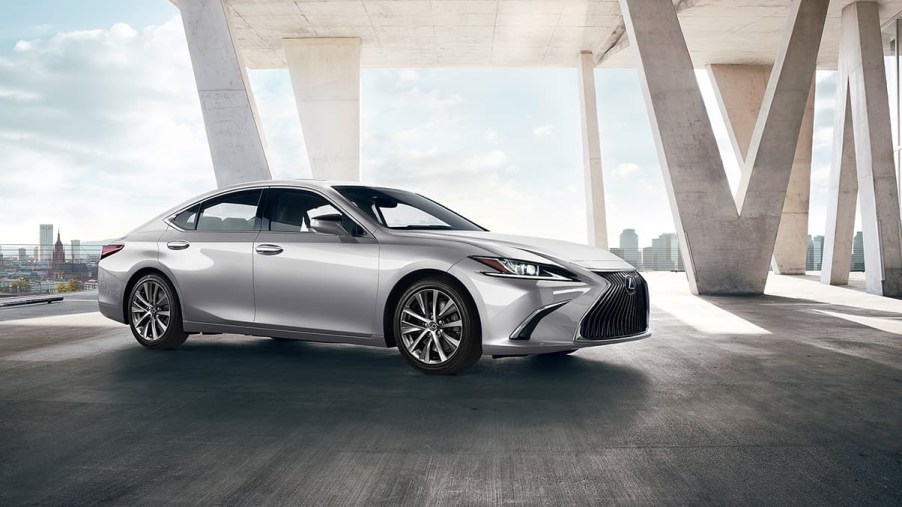
What Do You Really Get When You Buy a 2020 Lexus ES300h?
We have had the luxury of being able to test out a 2020 Lexus ES300h and wondered if it was that much better than its closest cousin: the Toyota Avalon Hybrid. Rather than doing a normal side-by-side comparison between the two cars, since they’re essentially the same car underneath the sheet metal and badging, we decided to touch on some key takeaways when it comes to deciding between the more-pedestrian Toyota versus the richer Lexus.
Lexus does have a better brand image and service
There’s no denying that Lexus exudes luxury and opulence as compared to Toyota when it comes to overall brand image. After all, which statement sounds better: “I drive a Lexus ES300h” or “I drive a Toyota Avalon Hybrid?” In reality, it doesn’t matter. But let’s face, we would probably rather say we drive a Lexus. Although, a car like the ES300h goes much farther than the badge it wears.
In reality, what you’re paying for when you buy a Lexus is the overall experience from start to finish. If you walk into any Lexus dealership, you’re usually surrounded by a rich environment that’s clean and has the ambiance similar to that of a 5-star hotel. In fact, there are Lexus dealers across the country that literally look like they could be resorts and will likely make you feel relaxed, as opposed to tensed up once you set foot in the door, melting away your worries and aversion to the salesperson that’s ready to take your money.
The service centers are usually on-point as well and ready to offer you a loaner vehicle at your convenience. You did the pay premium, after all, so you deserve the best. The point is when you buy a Lexus, you’re buying more than a car, you’re buying an experience.

The Toyota Avalon does have its highlights, too
Don’t get us wrong, Toyota dealerships are nice, too, but you just don’t get the same luxurious feeling. As far as the car, the Toyota Avalon does wrap you in similar luxurious accouterments as it’s Lexus-branded cousin; including leather seating surfaces, a plush ride, and even the same hybrid powertrain, but it doesn’t have the same overall feeling. The interior layout on Avalon Hybrid is nice, but it’s not as sleek and stylish as the one in the ES300h. For example, the dash layout in the Avalon looks a little more square, as opposed to the flowing and graceful design of the ES300h.
But the Avalon does have its highlights, although, it’s mainly when it comes to its pricing structure. For around $45,000, you can get more features than you would get in the base ES300h that costs almost $8,000 more, including a surround-view camera, rear-cross traffic alert, and Intelligent Clearance Sonar, which detects pedestrians at parking-lot speeds. As always, the Toyota experience is about value, as opposed to luxury, and that’s you’re paying for.

But is the luxury experience worth the price?
Technically speaking, if you were to load up a top-trim Lexus ES 300h with packages that include blind-spot monitoring and rear cross-traffic alert, navigation, and the Mark Levinson premium sound system, you’re looking to spend around $55,000, much more than the fully loaded Avalon Hybrid. But is the extra $10,000 worth the dealership and service experience, the brand image, and the better sound system over the Avalon Hybrid?
To some budget-minded consumers, probably not. But if money isn’t a concern, then we would say to shoot for the moon and treat yourself. Ultimately, if you’re going to live with a car for at least three years and can afford to do so, why not make it the most pleasant experience possible?



